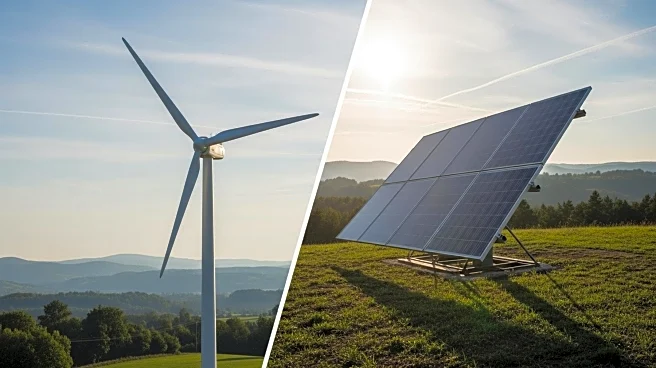What's Happening?
The Trump administration has implemented a pause on permits for new wind and solar projects on public land, both onshore and offshore. This decision affects the renewable energy sector, which has been rapidly growing and accounted for 17% of the U.S. electricity production last year. The majority of renewable energy projects, about 95%, are situated on private land, but many require federal approval, which is now being stalled due to the new rules. This move has raised concerns within the energy industry, as it could hinder the development of large-scale energy projects on private property.
Why It's Important?
The pause on permits for new wind and solar projects could significantly impact the renewable energy industry in the U.S., which is crucial for reducing carbon emissions and transitioning to sustainable energy sources. The decision may slow down the progress towards achieving energy independence and meeting climate goals. Stakeholders in the energy sector, including companies and environmental groups, may face challenges in expanding renewable energy infrastructure, potentially affecting job creation and economic growth in the sector.
What's Next?
The renewable energy industry may need to navigate new political and bureaucratic barriers to continue its expansion. Industry leaders and environmental advocates might increase lobbying efforts to reverse or mitigate the impact of these new rules. Additionally, there could be legal challenges or policy proposals aimed at restoring the momentum of renewable energy projects.
Beyond the Headlines
The decision to pause permits for renewable energy projects reflects broader political dynamics and priorities within the Trump administration. It highlights the tension between economic interests tied to traditional energy sources and the push for sustainable energy solutions. This development may also influence public opinion and voter sentiment regarding environmental policies and energy strategies.











